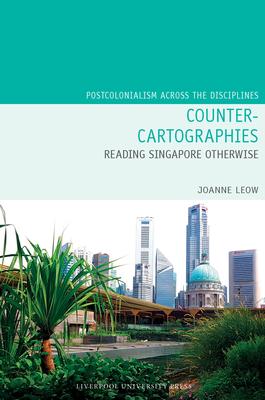Ebook available to libraries exclusively as part of the JSTOR Path to Open initiative.
Counter-Cartographies draws from a body of Anglophone and multilingual cultural texts created in contemporary Singapore and in its diasporic communities. From banned documentaries to award-winning graphic novels, flash fiction collections to conceptual art, there is a vibrant, growing body of transmedial, multi-genre resistance to an overmapped, hyper-planned, and ecologically destructive postcolonial development.
The author proposes methods of cultural analysis and close reading that are "counter-cartographical" --- reading in resistance to and yet pressed up against the regulations of a (post)colonial map. To excavate, wayfind, circumvent, and confabulate in these spaces enables us to understand the contours and pressures of authoritarian governance and reveal the insidious aspects of biopolitical power in the (post)colonial city. These four spatial and theoretical movements deliberately enmesh the space of everyday life in a complex awareness of time: in historical contexts, in ongoing social relations, in contemporary political realities, and the imagined possibilities of literary spaces.
In a global political context that is increasingly marked by a return to authoritarianism, cultural production from Singapore provides an intense, microcosmic view of the conditions of art-making an overdetermined urban space, under duress and censorship. It further lays bare the ecological and human costs of unbridled postcolonial extraction and development.
